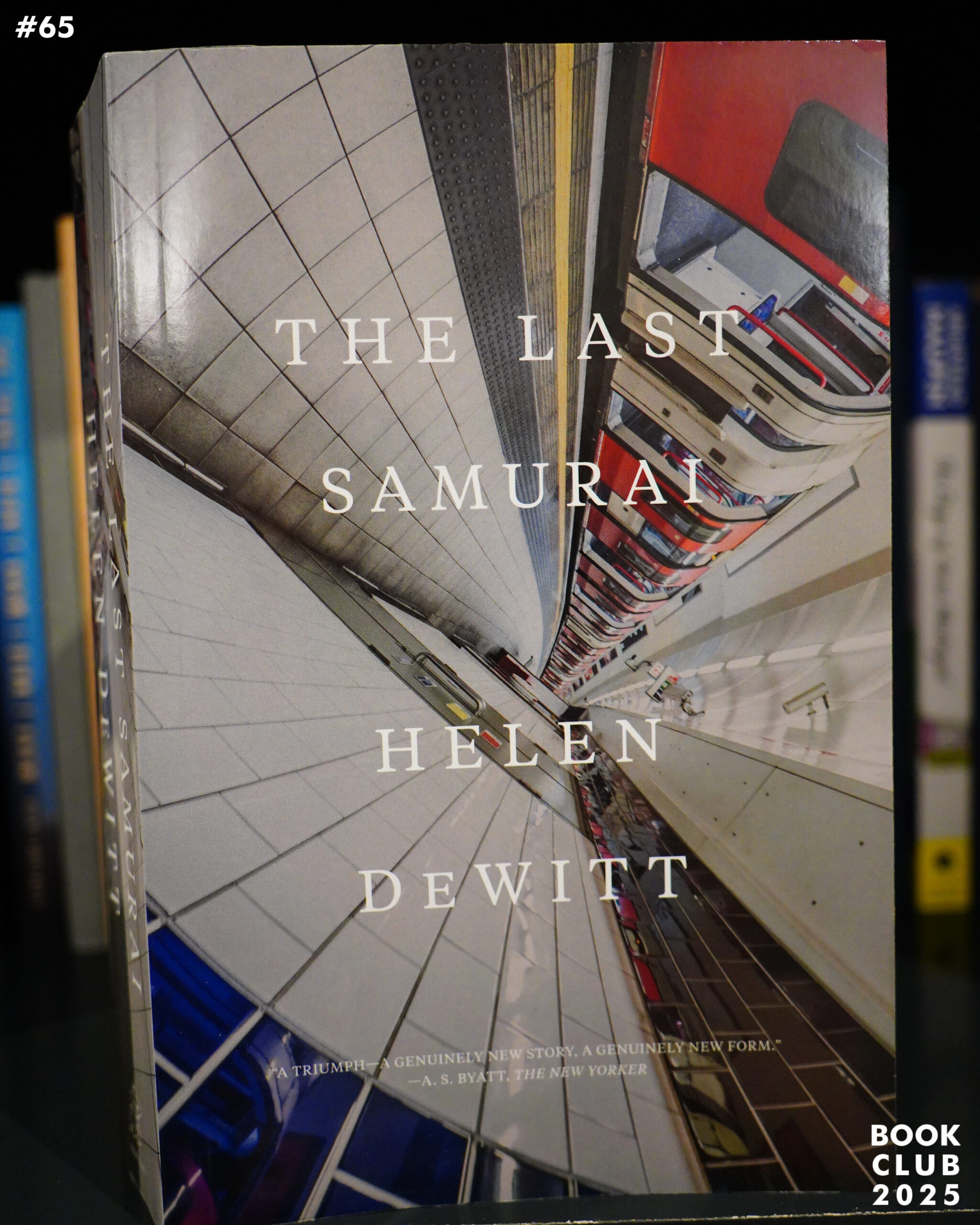I read The English Understand Wool by DeWitt two months ago, and I liked it so much I got the rest of her books, too. (There aren’t that many.)
And… it’s fantastic! I gulped the 480 pages down over the last two days — well, almost; I had to go to a jazz show yesterday, so I finished the last few pages today.
Like many authors who write “difficult” books, DeWitt puts the most unusual stuff at the start of the book. I’m not sure why, but I’ve observed this tendency before (like how Gravity’s Rainbow first section is a bit of challenge, and then the rest is a breeze). It’s like… throwing down the gauntlet? But then rewarding the reader who perseveres?
I have no idea, but the first er sixth? of this book is told via interruptions like on the above two pages, where she’s telling the reader a story, and then being interrupted (at “he so nearly”) and then continuing (at “never existed”). But the thing is, it’s all so fluid — it’s exciting and compelling and it’s fun and it’s funny.
I’ve read more than a hundred interviews with writers in The Paris Review over the years, and quite a few of them have stories of their first book: They always keep on writing, endlessly, putting everything into that first book, which then becomes unpublishable. So this is one of those — it’s got everything that interests DeWitt over different periods — but it ended up being published. By Miramax Talk of all people! It’s amazing: You could see nine editors out of ten (and especially somebody like Weinstein (who, to be fair, wasn’t an editor, but the owner)) going “But you’ve got to cut this down! Nobody’s interested in Japanese lessons! They could just use Duolingo” (anachronistically) “What’s the heart of this novel! It’s about a boy looking for a father! People love daddy issues! That shit sells! Get rid of the rest!”
And she didn’t, and we ended up with this marvellous novel.
I didn’t actually laugh out loud while reading it, but I did chortle out loud several times. And I have to say (well I don’t, but I’m going to anyway) that I found the first half of this book absolutely wonderful, and then the second half just kinda wonderful. That is, while the boy’s quest was riveting and funny, I just found the first half more interesting. But it’s all good. And a great ending, too — I had no idea how DeWitt was going to manage to get to an ending, but she did it.
The Last Samurai (2000) by Helen DeWitt (buy new, buy used, 4.11 on Goodreads)

